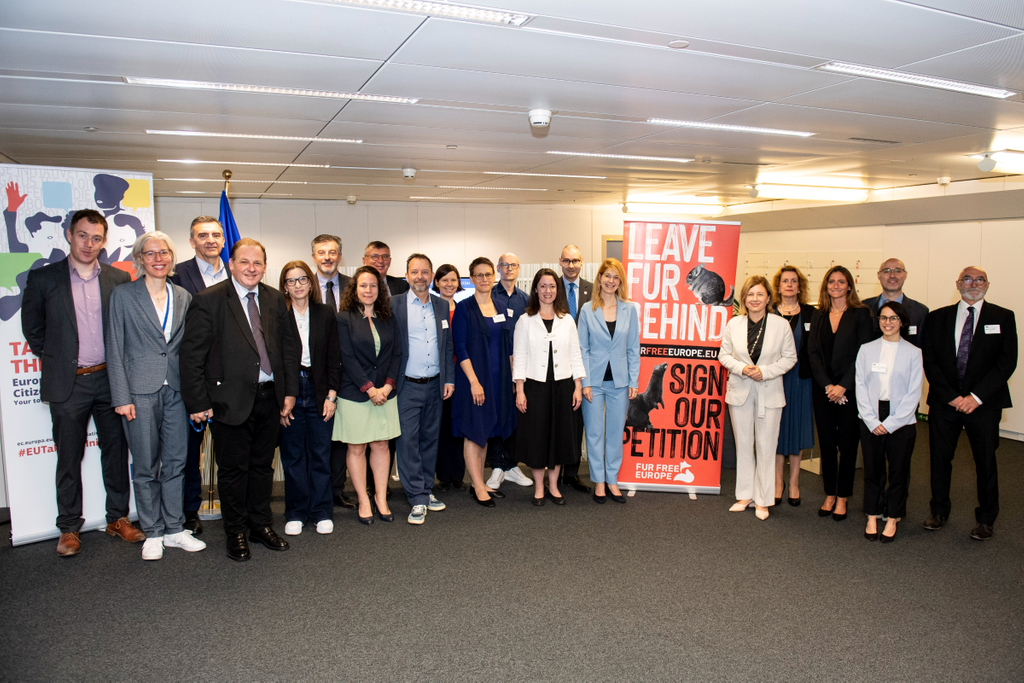The organisers of the initiative met on Thursday with the European Commission to present their case and pave the way for its public response to the call on a ban on fur trade in the EU by the end of this year.
As previously reported, the European Citizens Initiative (ECI) for a Fur Free Europe was officially closed last month after one year of campaigning reaching over 1,5 million of valid signatures in 18 EU member states.
This marked the 10th successful ECI since the tool for participative democracy was launched in 2012. Seven out of the ten ECIs have been dedicated to animal welfare issues which reflects the wide-spread public opinion for improvement in this EU policy area. It represents the most successful ECI for animal welfare, while being the third most successful overall.
To date, 19 EU member states have totally or partially banned or strictly regulated fur farming, sometimes with phasing-out period, on grounds of animal welfare and public health. The ECI goes further than most member states in calling not only for a ban on fur farming but also on a ban on the placing and marketing of farmed fur products in the European market.
But the EU is still one of the main regions for fur production globally. Every year millions of animals (mainly mink, foxes and raccoon dogs) are legally confined in small wire mesh cages and killed to produce fur articles.
The call to ban fur trade was recently reiterated by a majority of EU member states during the last session of the Agriculture and Fisheries Council (AGRIFISH) and has been publicly supported by a number of MEPs in the European Parliament.
By the end of 2023, the Commission is expected to publish its legislative proposal on revising EU’s animal welfare legislation. A ban on fur farming should be included in the proposal, according to the ECI. While it is possible to improve welfare standards for farmed animals, science has shown that this is not possible for wild animals on fur farms.
“As the EU is preparing to take a giant leap for animals, this is a great opportunity to show that such cruel unjustifiable practices have no place in Europe,” said Reineke Hameleers, CEO, Eurogroup for Animals. “Citizens have made their voice loudly heard, and for this democratic tool to be successful, we expect a positive response from the Commission.”
Fur farms pose also significant risks for the spread of zoonotic diseases, putting both humans and animals at risk. This became evident during the COVID-19 pandemic, when 450 mink farms in the EU reported outbreaks and millions of minks had to be culled to protect human health. Avian Influenza (bird flu) was recently confirmed on fur farms in Finland.
“Bird flu is a looming pandemic,” commented Thomas Pietsch at FOUR PAWS. “We have not learnt our lesson post COVID-19. Fur farms have no place in a modern society or modern economy. They risk not only the health of the animals but the public at large, with 75% of emerging human infectious diseases coming from animals.”
M. Apelblat
The Brussels Times

